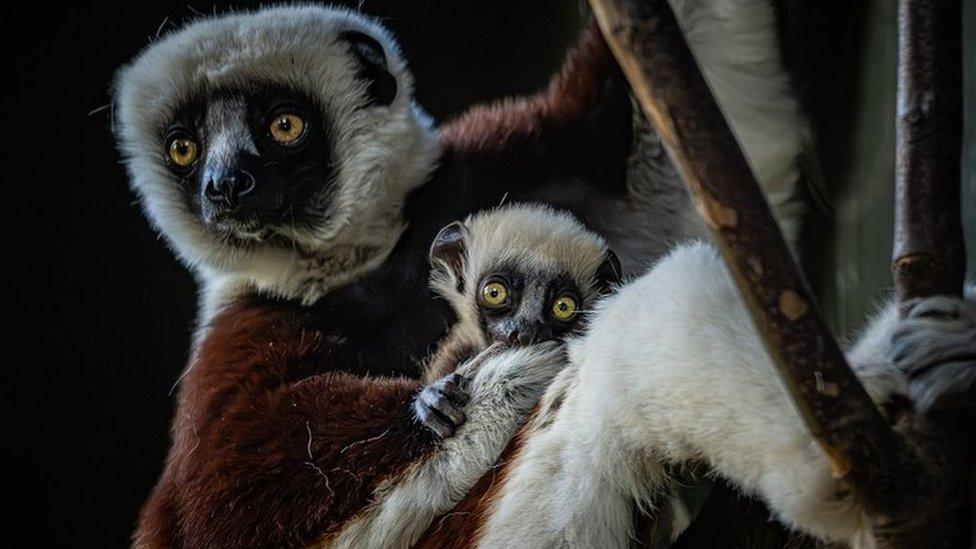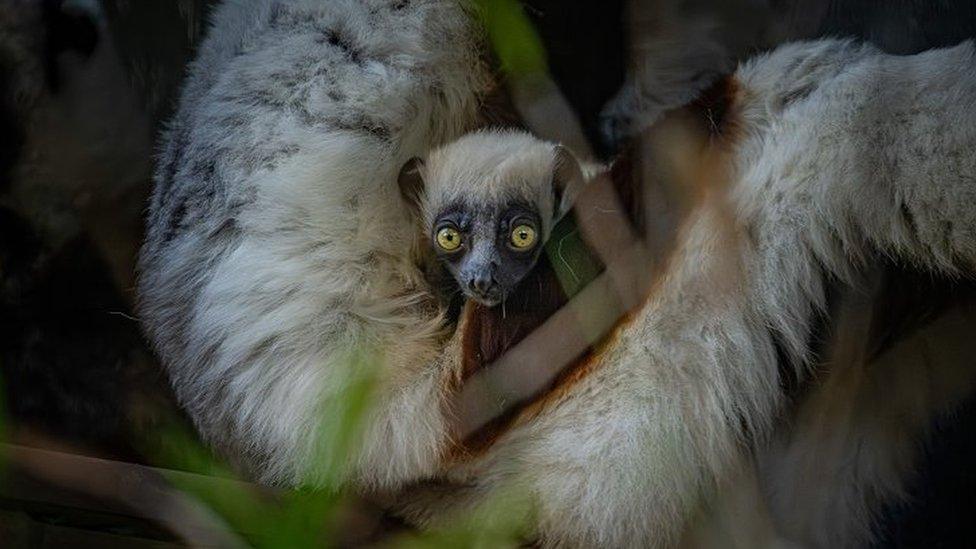Dancing lemur: Critically endangered Coquerel's sifaka born at Chester Zoo
- Published
- comments

A rare baby lemur has been born at Chester Zoo, from the endangered species called Coquerel's sifaka.
The tiny arrival weighed 120g at birth - that's less than a smartphone - and was born in September as part of a conservation programme to help protect the species.
The critically endangered primates are often called 'dancing lemurs' because of the unique way they move - upright, on their back legs and springing side to side!
Zookeepers say the new baby is already "wide-eyed and full of personality".

Keepers at the zoo say that the baby lemur has spent the first few months bonding with mum Beatrice and clinging tightly to her fur as she leaps from tree to tree.
Now three months old, the baby Coquerel's sifaka is becoming more independent and has begun to branch out and explore its habitat.
'Dancing lemurs' can only be found in the wild on the island of Madagascar, off the African coast.
Experts say that the Coquerel's sifaka population has decreased by 80% in the last 30 years due to widespread habitat loss.
The species is now classed as critically endangered by the International Union for the Conservation of Nature (IUCN).
This means it's at extremely high risk of extinction in the wild.
'Dancing lemurs' can leap more than six metres in the air in just one jump!
Experts say they hope to be able to find out whether it's a baby girl or a baby boy soon.
Dr Nick Davis, from the Zoo explained: "The new baby was born with a thick fuzzy white coat, just like its parents, and is already wide-eyed and full of personality.
"Over the next few months the youngster will gain enough confidence to begin exploring on its own. Only then will our team be able to get a closer look and discover if it's male or female," he added.
